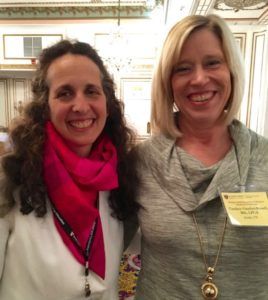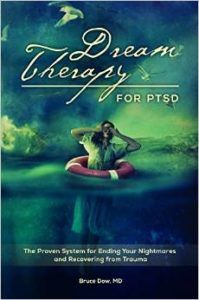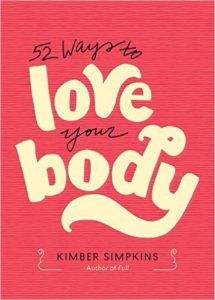

Candyce shares how she’d been working on her book on and off for five years until the aha moment swimming at the Y when she realized that if she died that day her only regret would be not having written and published her grief book.
- “It’s important to put yourself in a situation where you need to pitch your book. It helps you refine the idea.”
- “I learned from Rusty Shelton that a website needs to gives visitors a clear action step. I’m now working on a short ebook that helps readers assess and improve their current vitality.”
- “I realized how important it is to connect with people in the book industry in order to develop an action plan for success. In addition to my book coach, Lisa Tener, there were agents, publishers, a publicist and many types of editors. Just from my 70 second pitch, an agent requested to see my proposal when it’s done.”
- “I learned from Dr. Julie Silver that I need to be able to describe my book in one sentence. This challenge forced me to become extremely clear in my own mind about what I’m writing about, which makes my book writing more focused; and having this powerful sentence makes it much easier to share with anyone what my book is about.”
- “Rusty Shelton made it clear that social media is not just about numbers. It can be used to build relationships with people I find interesting. Kristin Meekhof expanded on this idea by saying she used gentleness and gratitude to build her online relationships. The idea of building relationships with gentleness and gratitude makes the whole prospect of building my platform a positive challenge instead of a necessary evil.”
- “Kindra Hall presented a novel way to think about anecdotes. The typical writing advice is to show instead of tell. By giving us the storytelling basic formula of Normal ->Explosion -> New Normal made the idea of showing come alive in a new way.”
- “Our brains are wired to connect to stories so the best lectures and writing utilize that structure. Easy to say and easy to forget, but critical to drawing in readers.”
- “With the extreme highs and lows one can experience writing a book and book proposal, having a book coach can be a better mood stabilizer than Lexapro!”

 Writing a Book: Your Muse Can Help
Writing a Book: Your Muse Can Help Are you comfortable writing for a specific audience, such as an academic or medical audience, and a little nervous branching out to write for a more general public or just a different type of reader than you are used to? If so, know that you are not alone.
Are you comfortable writing for a specific audience, such as an academic or medical audience, and a little nervous branching out to write for a more general public or just a different type of reader than you are used to? If so, know that you are not alone.

 Do you spend more time fretting about writing a book than actually writing it? Do you wonder how some people can write a book fast? Then you need to meet Kimber Simpkins, author of the Nautilus Award-winning memoir, Full: How I learned to Satisfy My Insatiable Hunger and Feed My Soul and 52 Ways to Love Your Body.
Do you spend more time fretting about writing a book than actually writing it? Do you wonder how some people can write a book fast? Then you need to meet Kimber Simpkins, author of the Nautilus Award-winning memoir, Full: How I learned to Satisfy My Insatiable Hunger and Feed My Soul and 52 Ways to Love Your Body. Lisa: When I met you, you’d already been working on your memoir for several years, and you spent a total of eleven years writing it. By contrast I think you said you wrote 52 Ways
Lisa: When I met you, you’d already been working on your memoir for several years, and you spent a total of eleven years writing it. By contrast I think you said you wrote 52 Ways 
 Lisa: How did you tap into creating these new ideas for exercises? Do you have a writing ritual or process? Or do ideas come to you throughout the day just living life and teaching yoga?
Lisa: How did you tap into creating these new ideas for exercises? Do you have a writing ritual or process? Or do ideas come to you throughout the day just living life and teaching yoga? Kimber: Take Lisa’s class. Do what she tells you to do. You’ll be thrilled with the result.
Kimber: Take Lisa’s class. Do what she tells you to do. You’ll be thrilled with the result.